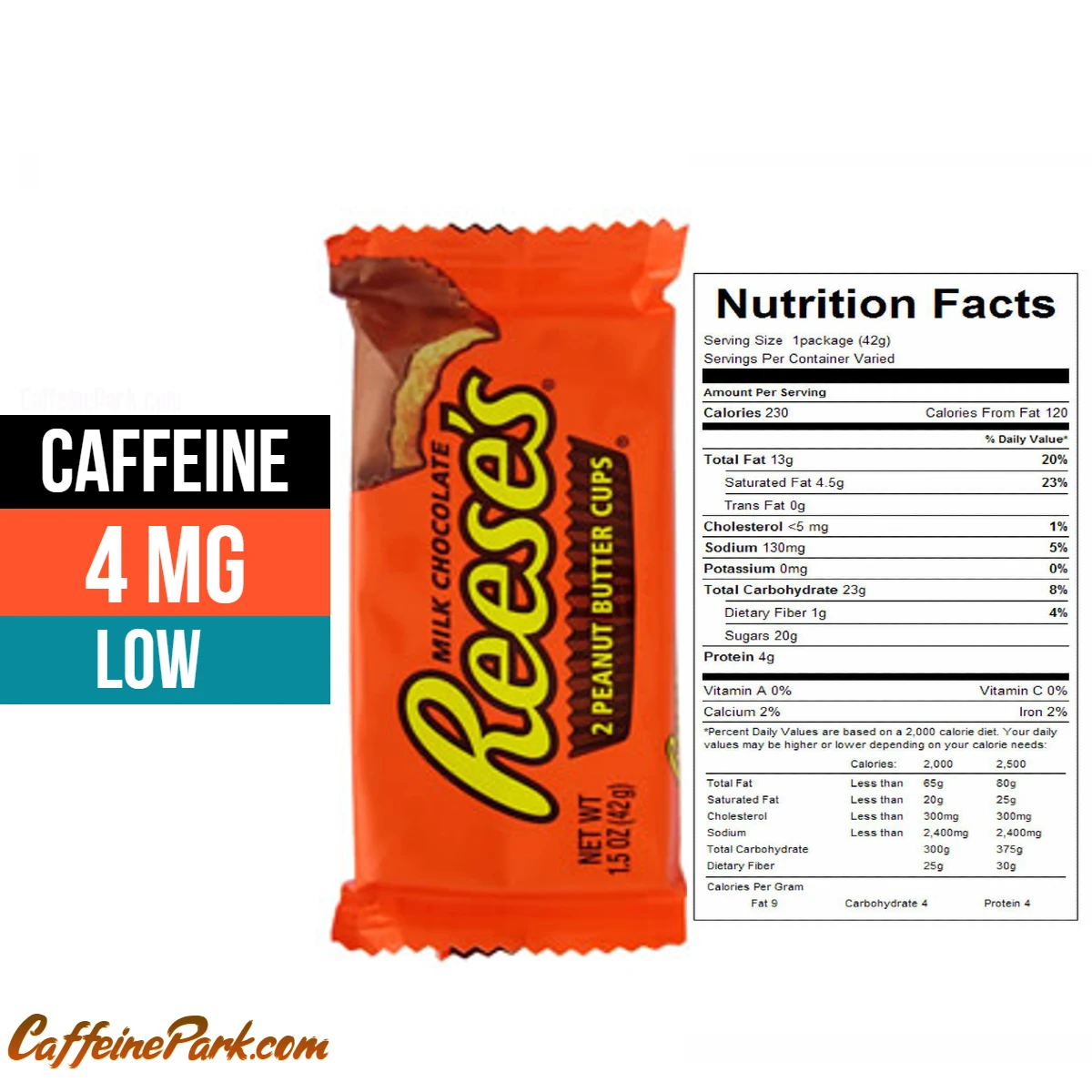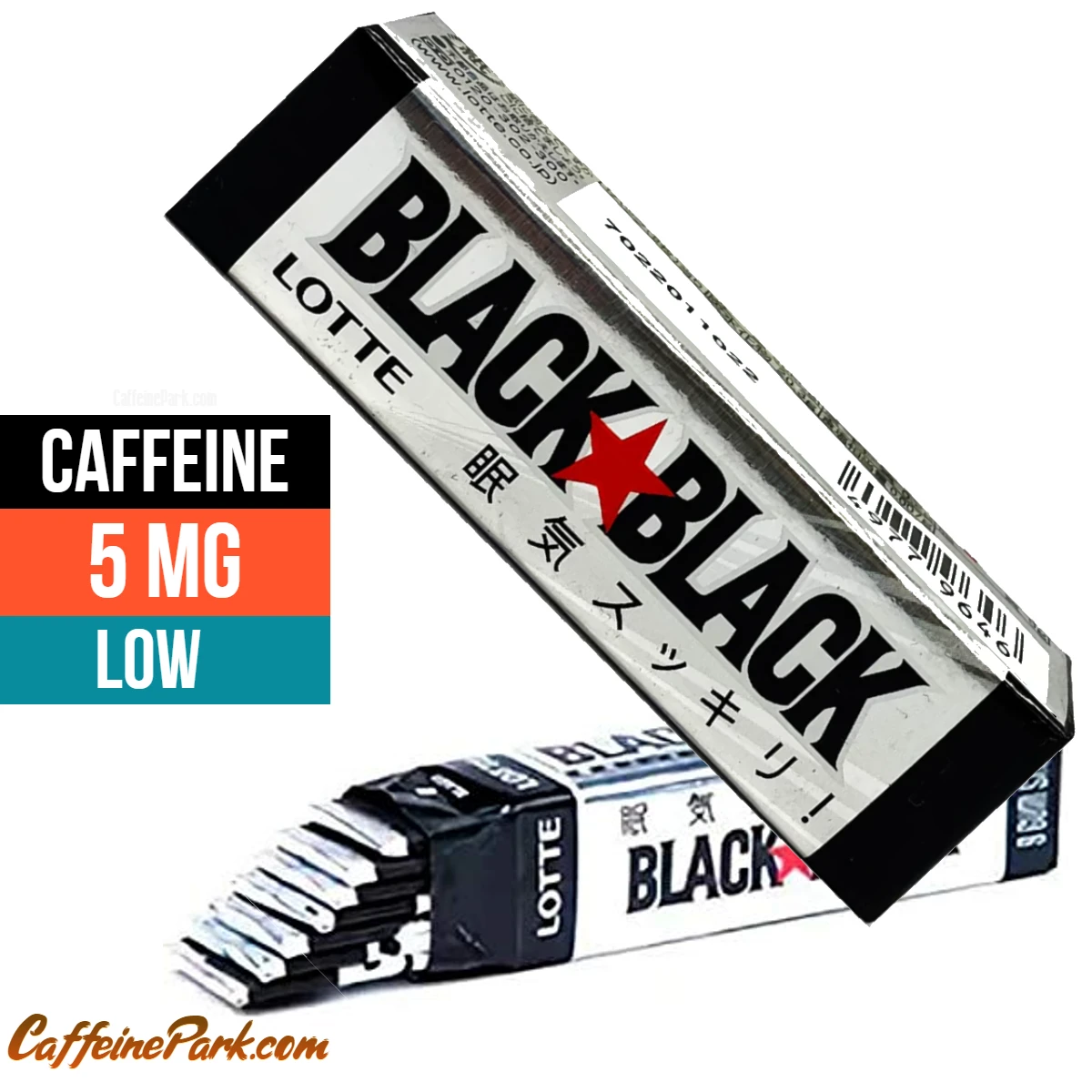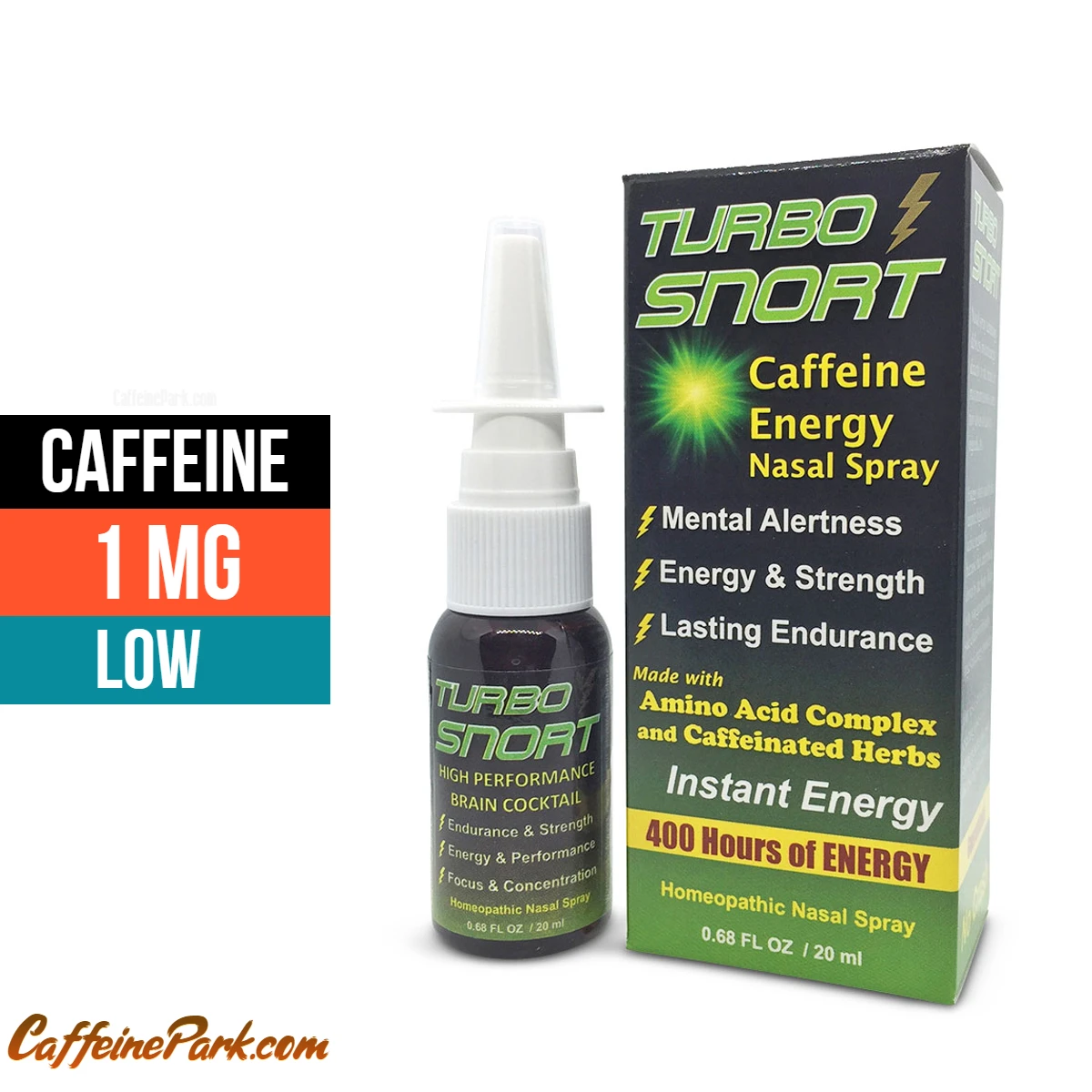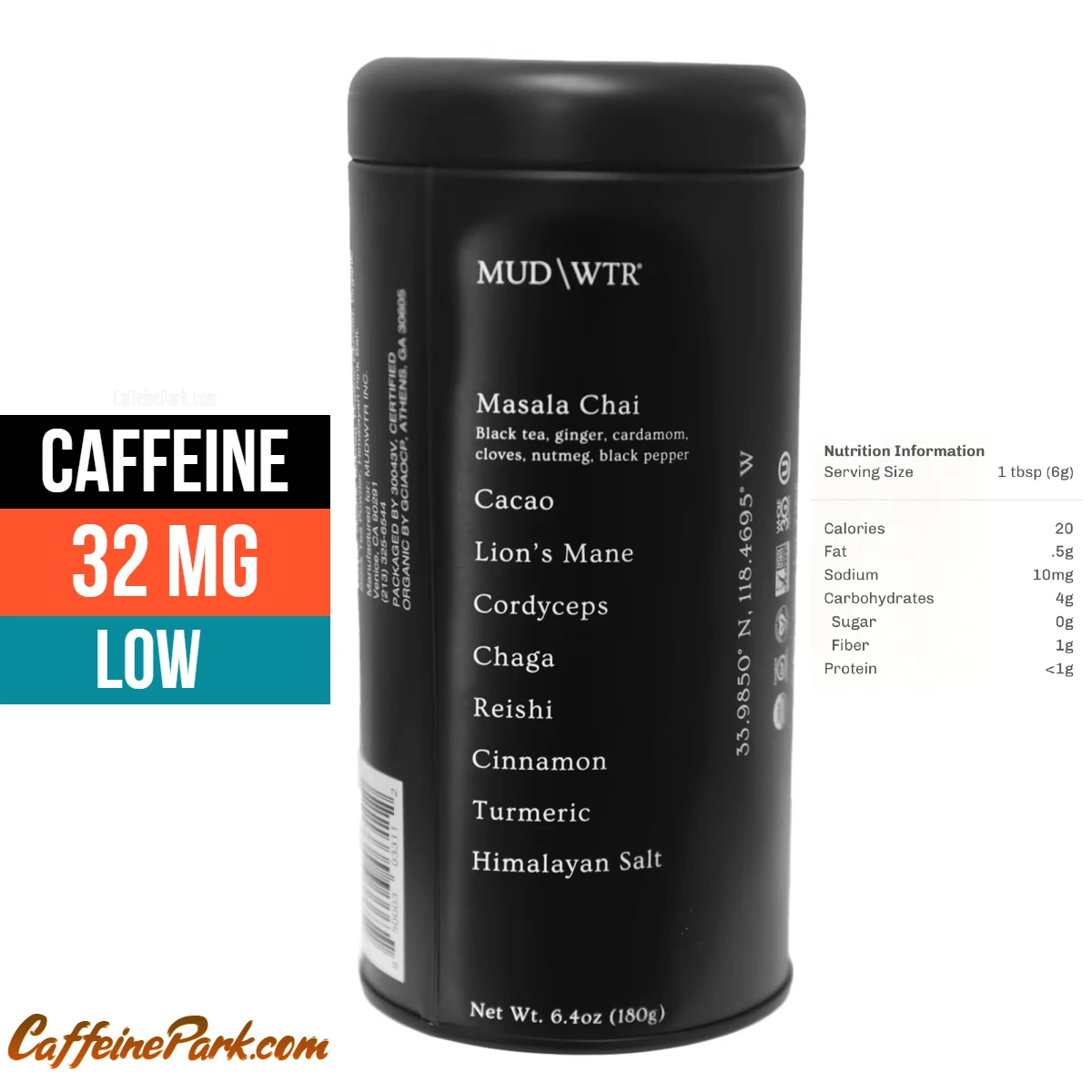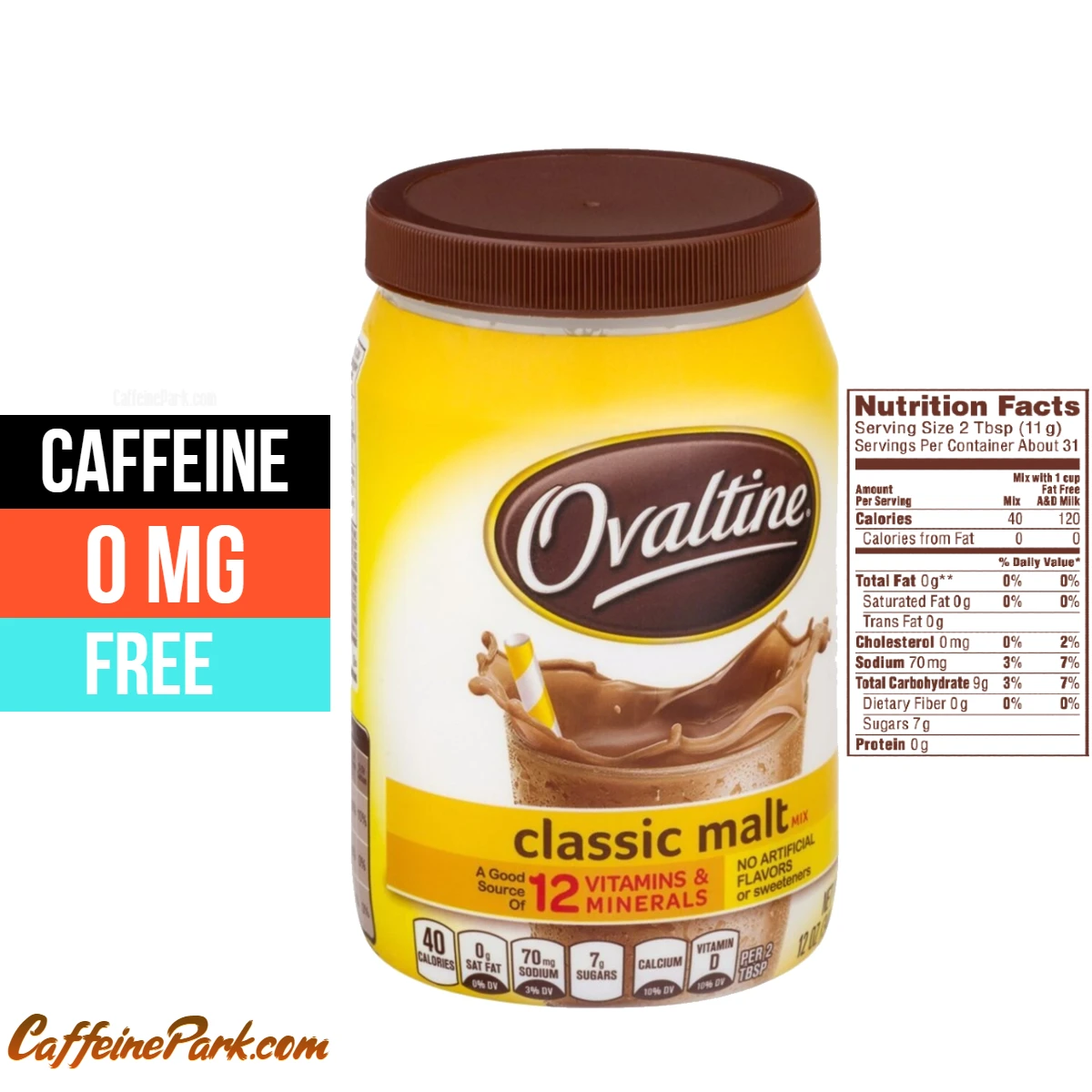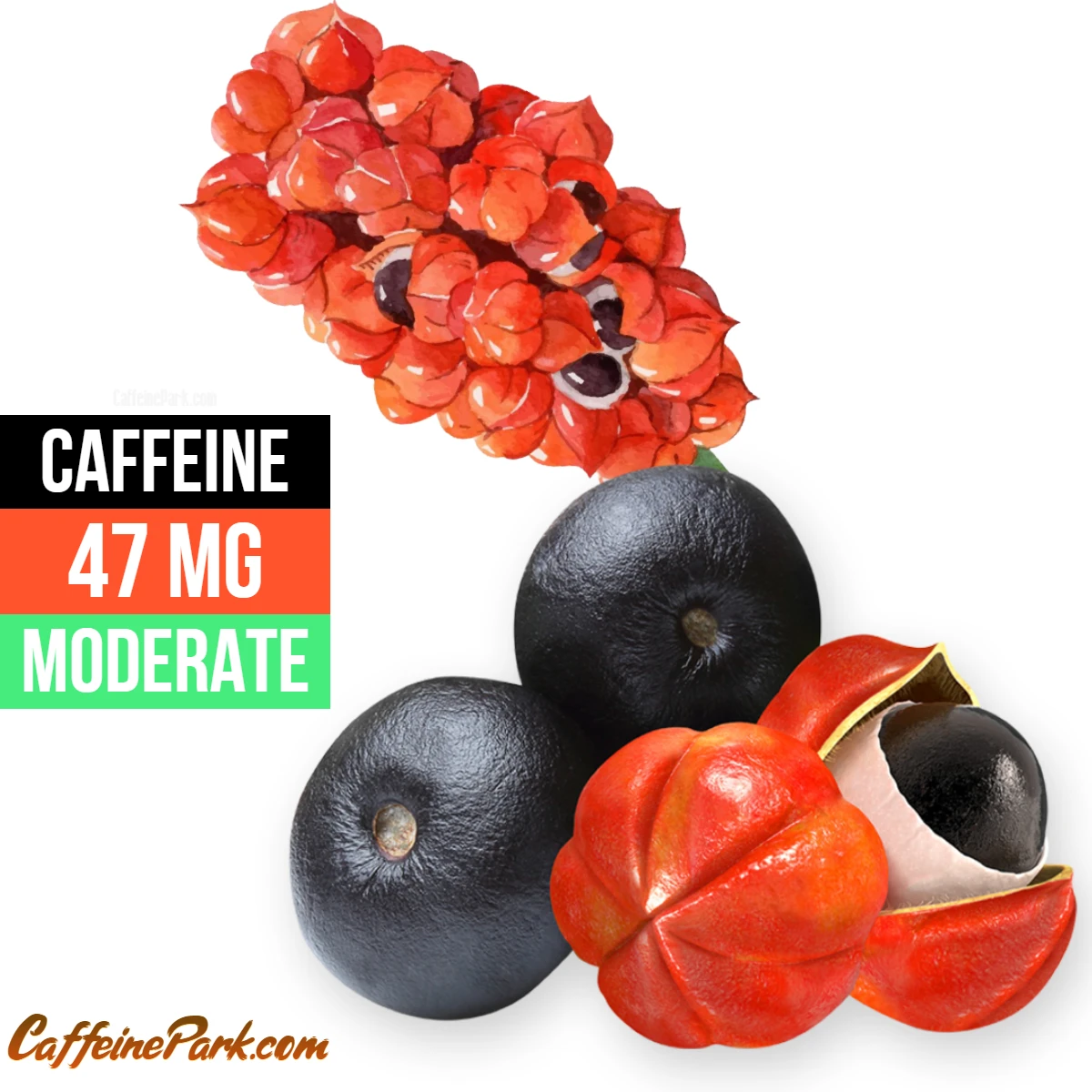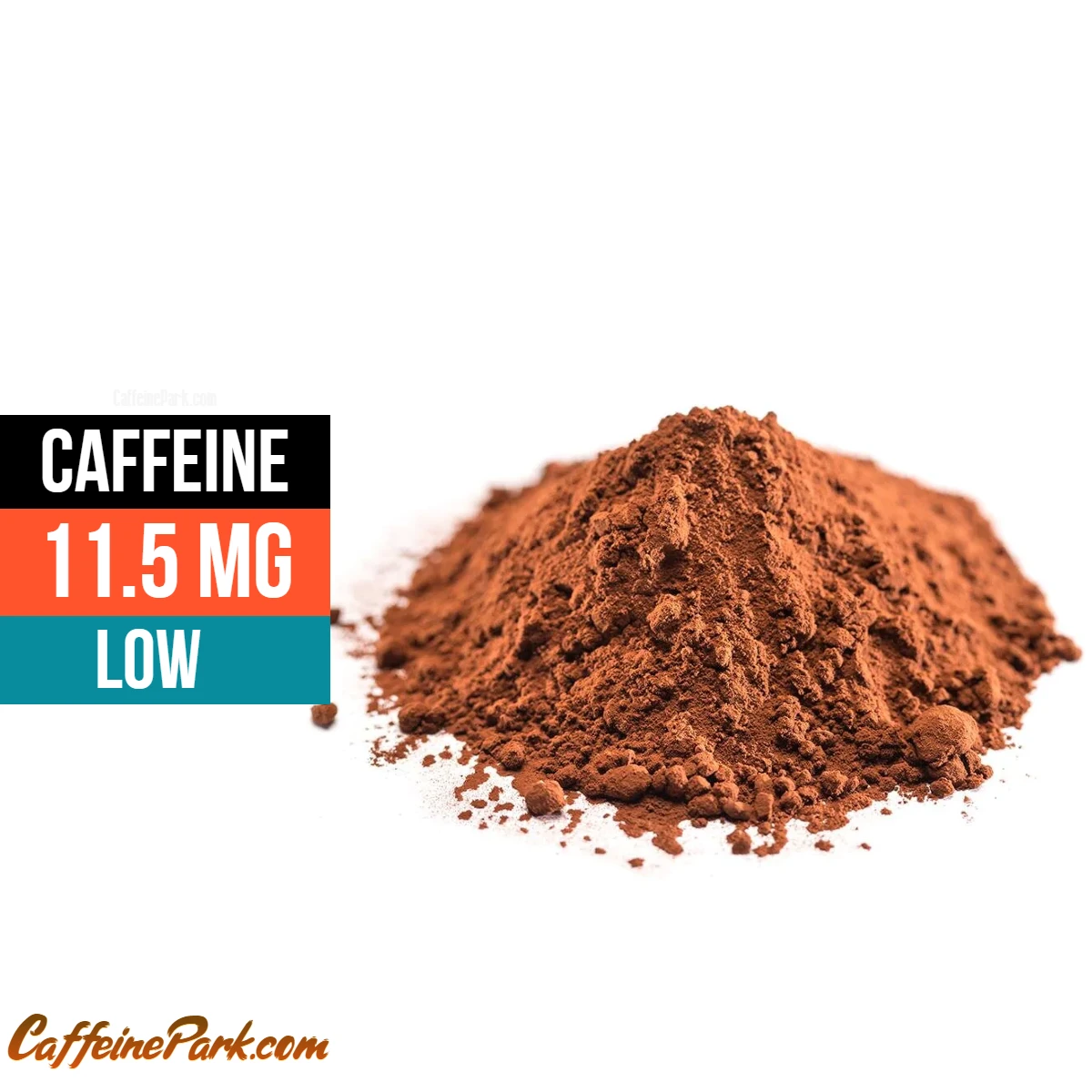
This all-natural unsweetened (bitter) cocoa powder is used for baking and making frostings. It has no sweeteners added, so it will impart the most bitterness and be the least sweet variety of dark chocolate. Most brands are similar but may differ slightly in the amount of caffeine depending on how the cocoa was processed.
This unsweetened all-natural Cocoa Powder from Tropical Traditions is 100% pure and certified organic. This high-quality cocoa powder is great for baking and has a rich, velvety taste and aroma. Organic is always best but if you only need cocoa powder occasionally, this amount will last a long time. The cocoa powder makes a great addition to any chocolate recipe: cookies, cakes, or brownies.
Does Cocoa Powder have caffeine?
Yes, Cocoa Powder contains about 11.5mg of caffeine per 1 tablespoon (5 grams). 1 Tablespoon of cocoa powder contains about 103 mg of theobromine, which can both stimulate you.
| Serving size | Caffeine Amount | Calories | Caffeine strength |
|---|---|---|---|
| 1 tablespoon (5 g) | 11.5 mg | 11 | LOW |
| 3 tablespoons (15 g) | 34.5 mg | 33 | MODERATE |
- Caffeine Amount: 11.5 mg
- Caffeine strength: LOW
- Calories: 11
- Serving size: 1 tablespoon
Factors That Affect the Caffeine Content of Cocoa Powder
There are several factors that can affect the caffeine content of cocoa powder:
- Type of cocoa powder: As mentioned earlier, there are two main types of cocoa powder: natural cocoa powder and Dutch-process cocoa powder. Natural cocoa powder is made from chocolate liquor that has been roasted at high temperatures, while Dutch-process cocoa powder is made from chocolate liquor that has been treated with an alkali. The caffeine content of natural cocoa powder is generally higher than the caffeine content of Dutch-process cocoa powder, as the alkali treatment reduces the caffeine content of the cocoa.
- Brand and origin: The caffeine content of cocoa powder can vary depending on the brand and where the cocoa beans are grown. Some brands of cocoa powder may contain more caffeine than others, and cocoa beans grown in certain regions may have higher or lower caffeine levels.
- Preparation methods: The way in which cocoa powder is prepared can also affect its caffeine content. For example, Cocoa powder that is made from roasted cocoa beans will generally have a higher caffeine content than cocoa powder that is made from unroasted cocoa beans.
- Serving size: The amount of caffeine in cocoa powder can also be affected by the serving size. A smaller serving of cocoa powder will contain less caffeine than a larger serving.
Ingredients in Cocoa Powder
- Ground Roasted Cocoa Beans
Compare caffeine in Cocoa Powder
| Items | Serving Size | Caffeine |
|---|---|---|
| Cocoa Powder | per tablespoon | 11.5mg |
| Coffee Flour | per tbsp (15 g) | 80mg |
| Chocolate Milk | per ounce | 2.5mg |
| FRS Energy Concentrate | per ounce | 37mg |
| Hershey’s Chocolate Milk | per ounces | 5mg |
| Hot Chocolate (Hot Cocoa) | per ounces | 5mg |
| M&M’s Chocolate Candies | per ounces | 5mg |
| Movit Energy Gummies | per ounces | 32mg |
| Yoo-Hoo Chocolate Drink | per ounces | 1mg |
Review
Cocoa powder is a versatile ingredient that is widely used in baking and cooking to add a rich, chocolatey flavor to desserts and beverages. It is made from cocoa beans, the seeds of the fruit of the cacao tree (Theobroma cacao), which are ground to produce chocolate liquor, a thick, dark liquid that contains cocoa solids and cocoa butter. Cocoa powder is made by pressing most of the cocoa butter out of the chocolate liquor, leaving behind a solid mass that is ground into a fine powder.
There are two main types of cocoa powder: natural cocoa powder and Dutch-process cocoa powder. Natural cocoa powder is made from chocolate liquor that has been roasted at high temperatures, which gives it a strong, chocolatey flavor. Dutch-process cocoa powder is made from chocolate liquor that has been treated with an alkali to neutralize its acidity, which gives it a milder, less bitter flavor.
Cocoa powder is a popular choice for making chocolate-flavored desserts and beverages, as it is relatively inexpensive and easy to use. It can be used to make a wide variety of dishes, including cakes, cookies, brownies, chocolate sauce, hot chocolate, and chocolate milk. It is also used as a natural food coloring, as it can give foods and beverages a rich, dark chocolate color.
Taste of Cocoa Powder
Cocoa powder has a strong, chocolatey flavor that is slightly bitter and slightly sweet. The flavor of cocoa powder can vary depending on the type of cocoa powder, the brand, and the origin of the cocoa beans. Natural cocoa powder tends to have a stronger, more intense chocolate flavor than Dutch-process cocoa powder, which has a milder, less bitter flavor.
Some people prefer the bold, rich flavor of natural cocoa powder, while others prefer the smoother, more subtle flavor of Dutch-process cocoa powder. The type of cocoa powder that you choose will depend on your personal taste preferences and the recipe that you are making.
Price
Cocoa powder is generally inexpensive and widely available at supermarkets, specialty food stores, and online retailers. The price of cocoa powder can vary depending on the brand, the type of cocoa powder, and the origin of the cocoa beans.
In general, natural cocoa powder is less expensive than Dutch-process cocoa powder, as it is easier to produce and requires fewer processing steps. Dutch-process cocoa powder tends to be more expensive due to the additional alkali treatment that it undergoes.
Organic cocoa powder may also be more expensive than non-organic cocoa powder, as it is produced using sustainable farming practices and is subject to stricter quality standards.
Health Benefits of Cocoa Powder
In addition to its delicious flavor and versatility in the kitchen, cocoa powder has a number of health benefits. Here are some of the ways in which cocoa powder can be good for your health:
- Heart health: Cocoa powder is a rich source of flavonoids, which are plant-based compounds that have been shown to have a number of health benefits, including improving heart health. Some studies have found that consuming cocoa flavonoids can help lower blood pressure, reduce the risk of heart disease, and improve blood flow to the brain and heart.
- Brain health: Cocoa flavonoids have also been shown to improve brain function and reduce the risk of age-related cognitive decline. Some studies have found that consuming cocoa flavonoids can improve memory, attention, and reaction time, and may even help reduce the risk of dementia and stroke.
- Antioxidant properties: Cocoa powder is a rich source of antioxidants, which are compounds that help protect cells from damage caused by free radicals. Free radicals are unstable molecules that can cause damage to cells, leading to inflammation and disease. Consuming antioxidants can help reduce the risk of chronic diseases such as cancer, heart disease, and diabetes.
- Mood and stress: Some studies have found that consuming cocoa flavonoids can improve mood and reduce stress. Cocoa flavonoids are thought to increase the production of endorphins, which are chemicals that can help improve mood and reduce stress.
How to Use Cocoa Powder
Cocoa powder is a versatile ingredient that can be used in a wide variety of dishes and beverages. Here are some tips for using cocoa powder in the kitchen:
- Baking: Cocoa powder is a key ingredient in many chocolate-flavored baked goods, such as cakes, cookies, and brownies. It can be used to add flavor and color to these dishes, and can also be used to make chocolate frosting and chocolate ganache.
- Beverages: Cocoa powder can be used to make hot chocolate, chocolate milk, and chocolate smoothies. It can also be added to coffee or tea to give it a chocolatey twist.
- Desserts: Cocoa powder can be used to make chocolate mousse, chocolate pudding, and chocolate ice cream. It can also be used to make chocolate fondue, chocolate sauce, and chocolate-dipped fruit.
- Natural food coloring: Cocoa powder can be used as a natural food coloring to give foods and beverages a rich, chocolatey color. It can be added to homemade breads, cakes, and cookies, as well as smoothies and other beverages.
- Substitutions: Cocoa powder can be substituted for chocolate in many recipes, although the flavor may be slightly different. To substitute cocoa powder for chocolate, use 3 tablespoons of cocoa powder and 1 tablespoon of butter or oil for every 1 ounce (28 grams) of unsweetened chocolate called for in the recipe. Keep in mind that cocoa powder is unsweetened, so you may need to add extra sugar or sweetener to the recipe to balance the flavor.
How to Store Cocoa Powder
Cocoa powder can be stored in an airtight container in a cool, dry place for up to 2 years. It should be kept away from heat and moisture, as these can cause the cocoa powder to lose its flavor and aroma. Cocoa powder can also be stored in the refrigerator or freezer to extend its shelf life.
Conclusion
Cocoa powder is a versatile ingredient that is widely used in baking and cooking to add a rich, chocolatey flavor to desserts and beverages. It is a rich source of flavonoids, antioxidants, and other nutrients that can have a number of health benefits. Cocoa powder is easy to use and can be stored for long periods of time, making it a convenient and tasty addition to any kitchen.
FAQs
Cocoa powder contains approximately 11.5mg of caffeine per 1 tablespoon (5 grams).
The caffeine content in cocoa powder is relatively low compared to coffee or tea. However, it can still have a stimulating effect, especially when consumed in larger quantities.
Cocoa powder also contains theobromine, a compound similar to caffeine. One tablespoon of cocoa powder contains about 103mg of theobromine.
Caffeine and theobromine are natural stimulants that can promote wakefulness and alertness. They can provide a mild boost of energy.
Yes, the caffeine content in cocoa powder can vary slightly depending on the brand and processing methods. Darker, more concentrated cocoa powders may have slightly higher caffeine levels.
Cocoa powder can be a relatively low-caffeine alternative compared to other caffeinated beverages. It provides a flavorful option with potential energy-boosting effects.
While cocoa powder is generally safe for consumption, it’s important to consume it in moderation, especially for individuals who are sensitive to caffeine or have certain health conditions. Consulting a healthcare professional is recommended if you have any concerns.
Yes, cocoa powder is a versatile ingredient that can be used in baking, cooking, or making hot cocoa. Its caffeine and theobromine content can add a pleasant flavor and potentially energizing effects to your favorite recipes.
Is Cocoa Powder a Good Source of Caffeine?
Cocoa powder is not a significant source of caffeine compared to other sources such as coffee, tea, and energy drinks. If you are sensitive to caffeine or are trying to limit your caffeine intake, cocoa powder is a relatively low-caffeine option. However, if you are looking for a source of caffeine to help increase alertness and concentration, cocoa powder may not be the best choice.
Can You Get Caffeine-Free Cocoa Powder?
Yes, it is possible to get caffeine-free cocoa powder. Caffeine-free cocoa powder is made from cocoa beans that have been decaffeinated using a chemical process that removes most of the caffeine from the beans. The resulting cocoa powder has a similar flavor and appearance to regular cocoa powder but contains very little or no caffeine.
Caffeine-free cocoa powder can be a good option for people who are sensitive to caffeine or who want to avoid caffeine for other reasons. However, it is important to note that caffeine-free cocoa powder is not completely caffeine-free, as it may contain trace amounts of caffeine.
Is Cocoa Powder Safe for Children?
Cocoa powder is generally considered safe for children to consume in moderate amounts. However, it is important to keep in mind that cocoa powder does contain caffeine, and children may be more sensitive to the effects of caffeine than adults.
If your child is sensitive to caffeine or has a medical condition that requires them to limit their caffeine intake, it is important to talk to their doctor or a healthcare professional before giving them cocoa powder.
Read More:
